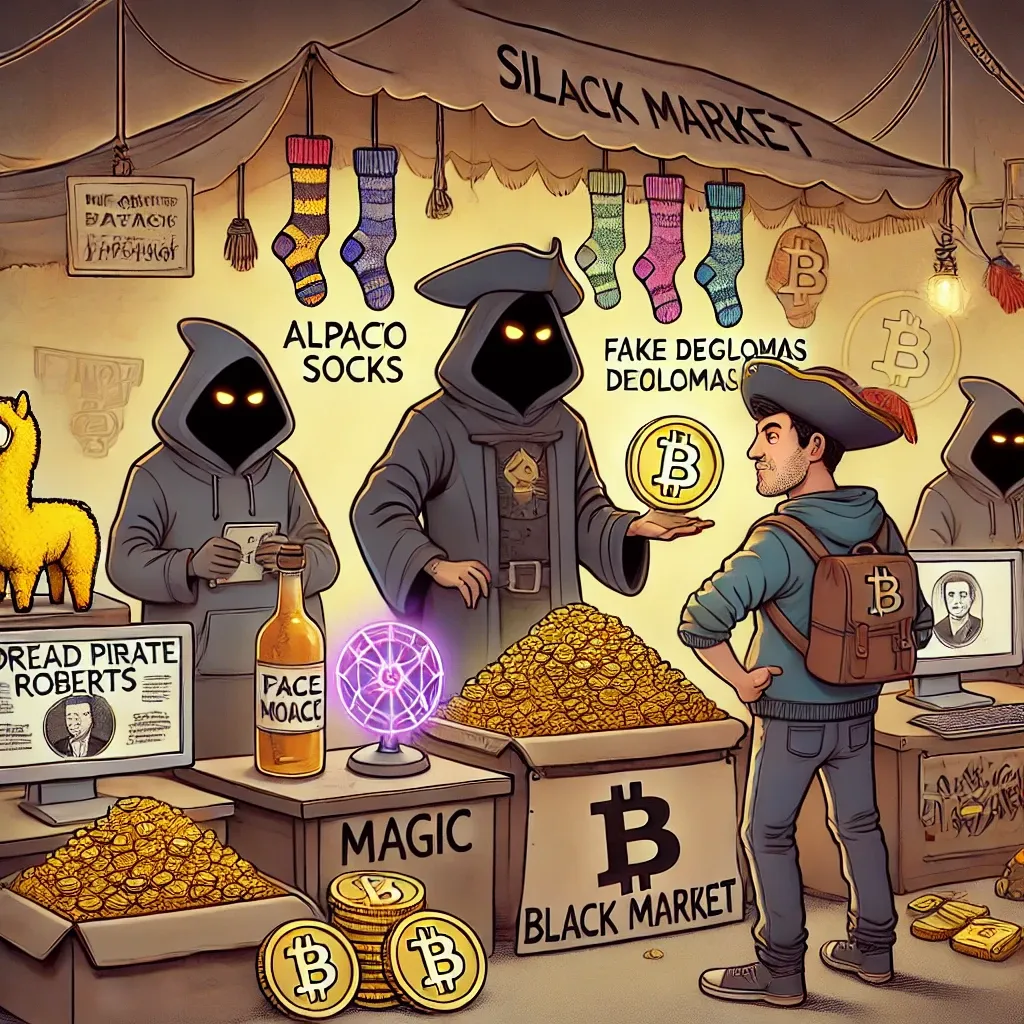The internet is a strange and wonderful place, but no corner of it has been quite as infamous as the Silk Road. It wasn’t an ancient trade route but rather the digital equivalent of a shadowy bazaar where you could buy everything from fake passports to… alpaca socks? And the currency of choice? None other than Bitcoin, the quirky digital token that hackers and libertarians adore. Buckle up, because this story has it all: drama, mystery, and, yes, a lot of questionable purchases.
What Was the Silk Road? (No, Not the One With Camels)
A Brief History of the Silk Road
The Silk Road website launched in 2011, not to be confused with the ancient trade route connecting China and Europe. This Silk Road was more about anonymity and less about silk. Built on the Tor network, it promised buyers and sellers a secure and private marketplace—an eBay for the adventurous, if you will.
Who Was Behind It?
The mastermind of this operation was Ross Ulbricht, a man who modestly nicknamed himself "Dread Pirate Roberts" after the Princess Bride character. Ulbricht’s vision was to create a libertarian utopia where people could trade freely without the watchful eyes of the government. Spoiler alert: It didn’t end well for him.
How Did Bitcoin Become the Cart?
Bitcoin: The Currency of Choice
Bitcoin and the Silk Road were a match made in hacker heaven. With Bitcoin, transactions were pseudonymous, decentralized, and (at the time) untraceable. Need some questionable items shipped discreetly? Bitcoin had you covered.
Why Bitcoin?
Let’s face it, no one’s buying an illegal tiger cub with their Visa card. Bitcoin was perfect because:
-
Anonymity: Buyers and sellers didn’t have to use their real identities.
-
Borderless Transactions: No need to deal with pesky banks.
-
Price Volatility: Okay, this one wasn’t ideal, but it added to the thrill, didn’t it?
What Could You Buy on the Silk Road? (Spoiler: A Lot of Weird Stuff)
The Obvious Stuff
-
Illegal drugs: Cannabis, LSD, MDMA—you name it, they had it.
-
Weapons: Guns and ammo for the “adventurous” shopper.
The Bizarre Items
Not everything was illegal, though. Some items just left people scratching their heads:
-
Fake college diplomas
-
Alpaca socks (seriously, why?)
-
Rare books and collectibles
The Downfall: How the Silk Road Got Closed
The FBI’s Hunt
The Silk Road’s downfall reads like a Netflix thriller. In 2013, the FBI managed to arrest Ross Ulbricht in a San Francisco library, ending his reign as the Dread Pirate Roberts. They seized millions in Bitcoin, which was worth a lot more a few years later. Talk about bad timing for Ulbricht.
What Went Wrong?
-
Operational Security Lapses: Ulbricht’s personal email and other careless mistakes gave investigators the clues they needed.
-
Bitcoin’s “Anonymity”: Turns out, Bitcoin isn’t as anonymous as people thought, thanks to blockchain analysis tools.
Legacy of the Silk Road
A Cautionary Tale
The Silk Road’s story serves as a warning—if you build it, law enforcement will come. The marketplace inspired countless imitators, but none achieved the same notoriety.
The Rise of Bitcoin
While the Silk Road’s fall was dramatic, it inadvertently helped popularize Bitcoin. The cryptocurrency went from being a niche tool for tech enthusiasts to a global phenomenon. Ironically, it’s now embraced by governments and big corporations.
Final Thoughts: From Hackers to Mainstream
The Silk Road was a wild ride, and its story is still fascinating years later. It was part libertarian experiment, part criminal enterprise, and part digital revolution. While the marketplace is long gone, its legacy lives on in the annals of internet history and in every Bitcoin wallet.
So the next time you hear someone talking about Bitcoin’s “mysterious past,” just remember: it wasn’t always about investments and NFTs. Once upon a time, it was the cart for the most bizarre shopping spree the internet had ever seen.
